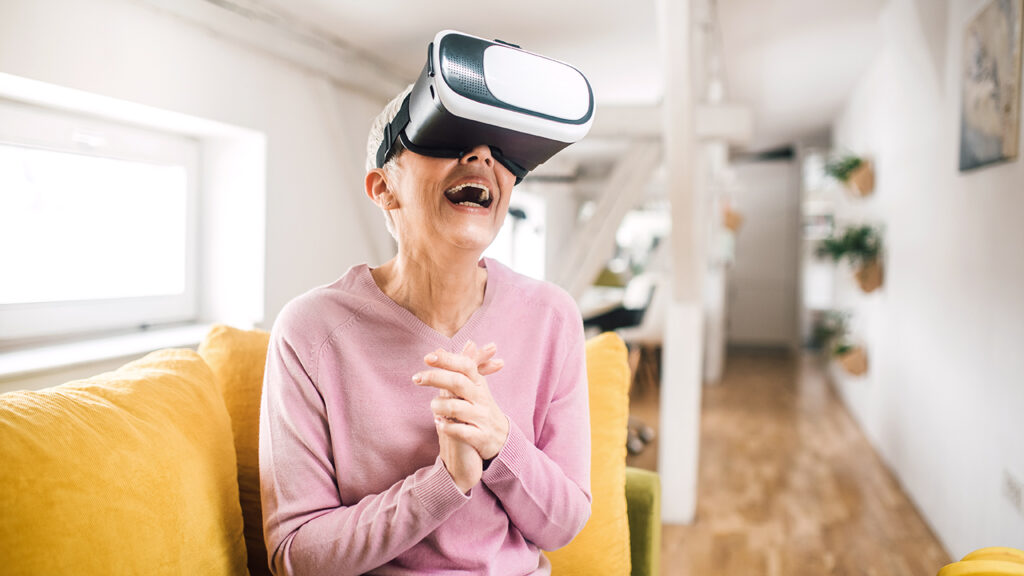
Fully immersive virtual reality is an emerging and promising therapeutic tool to manage psychosocial disorders in older adults, according to the results of a new study.
French researchers assessed the effectiveness of 360-degree immersive virtual reality videos on the well-being of older adults with or without cognitive impairments. They also looked at cybersickness and attitudes toward the emerging technology.
Their findings, published in the April issue of JAMDA, the journal of AMDA–The Society for Post-Acute and Long-Term Care Medicine, found the technology becoming increasingly accessible, affordable and easy to use, with virtual environments that allow users to experience a personalized, immersive 360-degree environment that stimulates an emotional response.
“Our results show that VR 360-degree is a promising technology because it seems that benefits can be observed after only a few sessions,” the authors explained. “Qualitative data analysis showed that older adults found the experience enjoyable, realistic and to generate positive emotions to them.”
A review of 10 studies involving 524 older adults aged 68 to 87 who lived in residential care communities or the community at large examined the effects of virtual reality on anxiety, apathy, loneliness, depression, social engagement, quality of life and emotions. Although rare, they also found side effects associated with virtual reality disorientation, including motion sickness, dizziness, vertigo, eye strain, headache and blurred vision.
The content of the VR environment, they said, is crucial to optimizing the potential positive effects on well-being. They found that even short-term exposure to natural settings — woods, parks, beaches — can result in positive feelings and reduced negative emotions in older adults with or without cognitive impairment.
“These findings have been particularly relevant during the ongoing COVID pandemic, in which VR has provided a unique opportunity to enable older adults with age-related impairments to escape from their often confined realities and be transported to interesting, stimulating, calming and enjoyable places,” the authors concluded.
They encouraged researchers to partner with the industry to develop new virtual reality applications for personalized content for older adults.
Virtual reality as an insurance benefit
Earlier this year, MyndVR, which provides virtual reality experiences for senior living residents and other older adults, announced a partnership with specialty managed care organization AgeWell New York to offer VR therapy sessions to nursing homes residents as part of AgeWell’s CareWell I-SNP plan. (The offering is not available to assisted living residents yet, but coverage is planned for next year.)
AgeWell is the first insurance company to cover VR as a supplemental benefit under Medicare Advantage.
MyndVR also is looking to expand coverage of its VR technology through a coalition called DigitalTherapyNOW.org. The group of academic and industry partners is working to educate lawmakers to support passage of the Access to Prescription Digital Therapeutics Act, which was originally introduced in March 2022. If passed, the bill would formally recognize digital therapeutics at a federal level.




